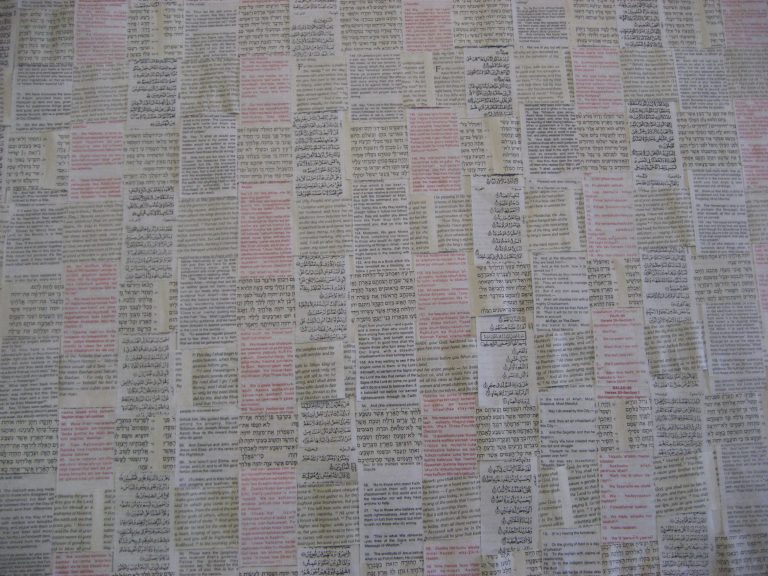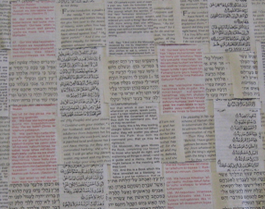 An upcoming exhibition at The John Slade Ely House for Contemporary Art in New Haven, organized by the Orchard Street Shul Cultural Heritage Artists Project, is overshadowed by the organizers’ decision to censor one of the artworks in the show.
An upcoming exhibition at The John Slade Ely House for Contemporary Art in New Haven, organized by the Orchard Street Shul Cultural Heritage Artists Project, is overshadowed by the organizers’ decision to censor one of the artworks in the show.
After numerous requests that Richard Kamler, one of the participating artists, modify parts of his installation, and a month before the opening of the show, the organizers rejected his work for fear some members of the community may be offended.
Richard Kamler’s work, “right around the corner” consists of an installation and a performative component, a Community Conversation. The art work refers to the changing environment of the Orchard Street Shul and to the growth of a Muslim community in the neighborhood. The installation consists of a table covered by a paper tablecloth, made from interwoven fragments of pages from the Torah and the Koran, upon which the books themselves, placed in a copper bowl, are resting. Their pages are interwoven as well. The Community Conversation was to consist of conversations involving leaders of both communities. The artist has a 30-year history of creating similar projects and showing them internationally.
The organizers demanded the removal or modification of the tablecloth, even after being repeatedly assured that no actual books were cut, that the tablecloths consisted of photocopies of fragments, and that religious scholars agreed that the installation did not violate any religious taboo. Their concern was that the piece “might offend somebody.”
Artwork involving religion often upsets sensibilities no matter how respectful it may be. Artists we now think of as devout Catholics, for instance, were severely punished by the church hierarchy for expressing views that ran counter to orthodox teachings. Most recently, Chris Ofili’s Holy Virgin Mary, was seen as “offensive” to Catholics in spite of the fact that Ofili is a practicing Catholic himself.
Art is by its very nature open to multiple interpretations, and therefore even the most seemingly innocuous material may generate controversy. If the Orchard Street Shul Cultural Heritage Artists Project committee wanted to reduce the possibility of disagreement and ambiguity, perhaps it should have simply organized a show of archival photographs rather than an art exhibition.


